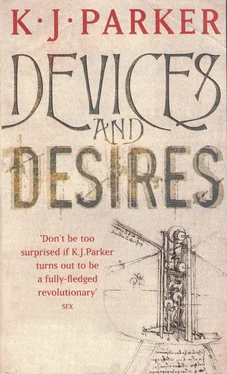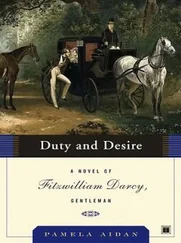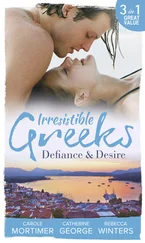K Parker - Devices and Desires
Здесь есть возможность читать онлайн «K Parker - Devices and Desires» весь текст электронной книги совершенно бесплатно (целиком полную версию без сокращений). В некоторых случаях можно слушать аудио, скачать через торрент в формате fb2 и присутствует краткое содержание. Жанр: Фэнтези, на английском языке. Описание произведения, (предисловие) а так же отзывы посетителей доступны на портале библиотеки ЛибКат.
- Название:Devices and Desires
- Автор:
- Жанр:
- Год:неизвестен
- ISBN:нет данных
- Рейтинг книги:3 / 5. Голосов: 1
-
Избранное:Добавить в избранное
- Отзывы:
-
Ваша оценка:
- 60
- 1
- 2
- 3
- 4
- 5
Devices and Desires: краткое содержание, описание и аннотация
Предлагаем к чтению аннотацию, описание, краткое содержание или предисловие (зависит от того, что написал сам автор книги «Devices and Desires»). Если вы не нашли необходимую информацию о книге — напишите в комментариях, мы постараемся отыскать её.
Devices and Desires — читать онлайн бесплатно полную книгу (весь текст) целиком
Ниже представлен текст книги, разбитый по страницам. Система сохранения места последней прочитанной страницы, позволяет с удобством читать онлайн бесплатно книгу «Devices and Desires», без необходимости каждый раз заново искать на чём Вы остановились. Поставьте закладку, и сможете в любой момент перейти на страницу, на которой закончили чтение.
Интервал:
Закладка:
'Really. We've got money for that.'
Miel shook his head. 'That's wages,' he said. 'And wages are a political statement. If I pay you, that makes you my servant, it's a different sort of relationship. Between gentlemen, it's a gift for a gift and a favour for a favour.'
'I see,' Vaatzes said. 'So if you teach me something in return, that's instead of money.'
'Of course not, you're missing the point. I'm a nobleman and you're a whatever you said, foreman. Therefore, courtesy demands that I give more than I get.'
Vaatzes thought about that. 'To show you're better than me.'
'That's it. That's what nobility's all about. If you want to be better than someone socially, you've got to be better than them in real terms too; more generous, more forbearing, whatever. Otherwise all the transaction between us proves is that I'm more powerful than you, and that wouldn't say anything about me. Hence the need for me to give more than I get. Simple, really.'
There was a pause while Vaatzes thought that one through. 'So I get the money and something else?'
'Yes.'
'In that case, fine. You have to teach me something.'
'That's right.'
'Thanks,' Vaatzes said. 'Thanks very much. So, what do you know that you could teach me?'
'Ah.' Miel grinned. 'That's a slight problem. Let's see, what do I know? Another thing about nobility,' he continued, 'is that you don't actually know many things, you just know a few things very well indeed. I could teach you statesmanship.'
'Meaning what?'
'How to debate in High Council,' Miel said. 'How to budget, and cost a project, how to forecast future revenues. Negotiation with foreign ambassadors. Court protocol. That sort of thing.'
Vaatzes frowned. 'Not a lot of use to me, really'
'I suppose not. So what does that leave? Estate management; no, not particularly relevant. I think we're just left with horsemanship, falconry and fencing.'
'Right,' Vaatzes said. 'All three of which I know nothing about. Which would you say is easiest?'
'None of them.'
'In that case, falconry or fencing. Horses give me a rash.'
Miel laughed. 'Maybe I'll teach you both,' he said. 'But it'll all depend on what Orsea decides.'
Vaatzes nodded. 'You've known him a long time, I think.'
'All my life. We grew up together, twenty or so of us, hanging round the court. Back then, of course, he was just the Orseoli and I was the Ducas, but we always got on well nonetheless-surprising, since my father was right up the top of the tree and the Orseoli were sort of clinging frantically to the lower branches. But then Orsea married the Countess Sirupati, and she's got no brothers and her sisters aren't eligible for some technical reason, so they got married off outside the duchy; as a result, Orsea was suddenly the heir apparent. Count Sirupat dies, Orsea becomes Duke. Couldn't have happened to a nicer fellow, either.'
'So you didn't mind?'
'Mind? Of course not. Oh, I see, you're thinking I might've been resentful because he got to be the Duke. Not a bit of it. The Sirupati would never marry the Ducas.'
Vaatzes looked puzzled. 'But I thought your family were high-ranking aristocrats.'
'We are. Which is the reason. Quite simple, really. The great houses aren't allowed to marry into the ruling family. Otherwise there'd be no end of God-awful power struggles, with all of us trying to get the throne. So we're all excluded; stops us getting dangerous ideas. If the Duke's only got daughters, he has to find his heir from the lesser nobility, people like the Orseoli. It's a good system. But you should've figured that out for yourself, if you've got a special intuition for how things work.'
'Well, I know now,' Vaatzes said. 'I guess I didn't figure it out for myself because it's a good idea, and those don't seem to happen much in politics. Who made the rule, anyhow?'
That struck Miel as a strange question. 'We all did,' he said. 'Gradually, over time. I don't think anybody ever sat down with a piece of paper and wrote the rules out, just so. They grew because everybody could see it made sense.'
'An intuitive feel for how things work,' Vaatzes said. 'Maybe there's hope for you people after all.'
That night, they camped in a small valley under a false peak. They didn't start pitching tents until sunset, and most of the work was done by torchlight; tired men doing things they knew by heart, co-operating smoothly and without thinking, like the components of a properly run-in machine. It was probably a good sign that Ziani was given a guest tent all to himself; a small one, with a plain camp bed, a lamp and an old iron brazier, but he didn't have to share and they put it up for him rather than telling him where it was and leaving him to do it. When he was alone, he sat on the bed-he ached all over from the exhaustion of walking uphill all day; his heels and soles were covered in torn blisters and his new shoes were smudged inside with blood-and stared at the boundary where the circle of yellow light touched the white canvas background. Having that sort of mind, he drew up a schedule of resources, a list of materials and components.
First, he had his life. In the Guildhall, and after that on the road, in the plain, on the terrifying outskirts of the battle, he'd recognised the inevitability of his own death without finding any way to reconcile himself to it. For many reasons (but one primarily) he couldn't accept it; death was a part that didn't fit, something that had no place in the scheme of things as they should be; an abomination. He had no illusions about his escape. He didn't believe in destiny, any more than he believed in goblins; if the iron ore was destined to end up as finished products, there'd be no need for an engineer. There had been a certain amount of resourcefulness and clever thinking involved, but mostly it was luck, particularly once he was away from people and under the impersonal, inhuman sky (he'd always hated Nature; it was a machine too big for him to take in, too specialised for him to repair). But he had his life, the essential starting-point. Can't get anything done if you're dead.
Next, he had his knowledge and his trade. Many years ago, he'd come to accept the fact that he was completely and exclusively defined by what he did. Other men were tall or short, strong or weak, kind or cruel, clever or stupid; they were funny, popular, reliable, feckless, miserable; they were lovers or runners or storytellers, bores, growers of prize roses, readers, collectors of antique candlesticks; they were friends, neighbours, enemies, evil bastards, compassionate, selfish, generous. Ziani Vaatzes was an engineer; everything he was, all he was. When he came home in the evening…
Ah yes. Finally, he had his motivation. He had, of course, lied to the Duke and the Duke's pleasant, slow-witted courtier. If it hadn't been for his motivation, he'd have stayed in the prison cell, or curled up in a ball on the moors and died; he certainly wouldn't have killed two men, and he certainly wouldn't be getting ready to betray his City's most precious secrets to the barbarians. He'd considered setting the motivation down in the list of problems and obstacles, since it was such an incredible burden, limiting his actions in so many ways. But in spite of that, it was an asset, and the best facility at his disposal. He saw it, in the blueprint in his mind, as the engine that would power his machine. Certainly nothing else could.
As for that list of problems and obstacles; in the end, it did him a service by putting him to sleep, because it stretched on endlessly, like the sheep you're supposed to count jumping over the gap in the wall. There were so many of them it was almost a relief; so many he didn't have to bother listing them, it couldn't be done. The way to cross a vast, flat plain when you're aching, starving and exhausted is not to resolve to get to the other side, because that's out of the question. You don't look to the mountains, a little grey blip on the bottom edge of the sky. You look ahead and make a bet with yourself: I bet you I'll get as far as that little outcrop of boulders, or that single thorn tree, before I fall over and die. If you win that bet, you double up on the next one, and so on until at last you can't trick yourself into taking another step; at which point, a defeated enemy army which just happens to be passing picks you up and rescues you. Piece of cake, really.
Читать дальшеИнтервал:
Закладка:
Похожие книги на «Devices and Desires»
Представляем Вашему вниманию похожие книги на «Devices and Desires» списком для выбора. Мы отобрали схожую по названию и смыслу литературу в надежде предоставить читателям больше вариантов отыскать новые, интересные, ещё непрочитанные произведения.
Обсуждение, отзывы о книге «Devices and Desires» и просто собственные мнения читателей. Оставьте ваши комментарии, напишите, что Вы думаете о произведении, его смысле или главных героях. Укажите что конкретно понравилось, а что нет, и почему Вы так считаете.












